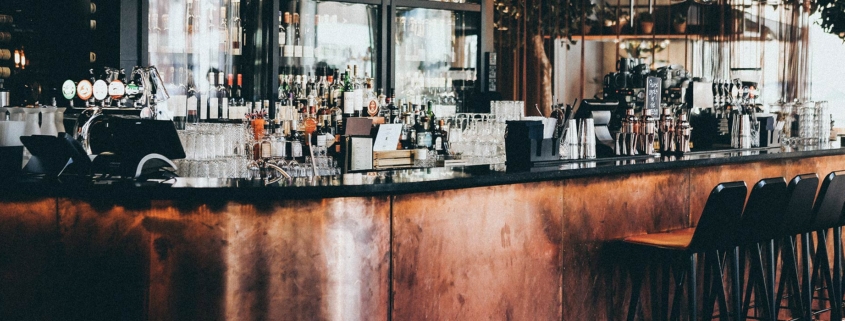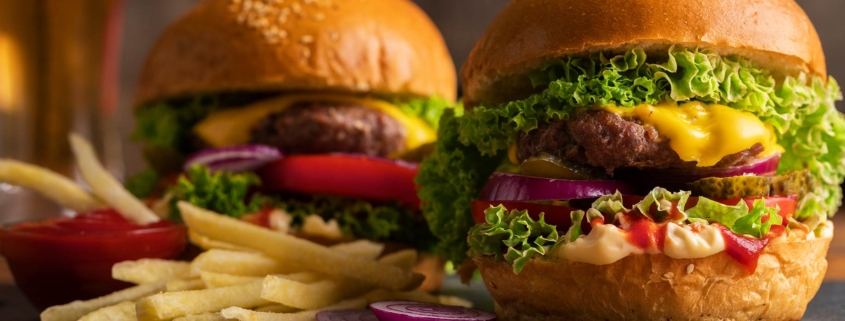Do you have a vision for opening a business in Victoria that involves selling or supplying alcoholic beverages?? It’s a great opportunity to create a vibrant community space where people can relax, socialise, and enjoy great food and drinks. However, establishing a successful business that serves alcohol requires careful navigation of planning regulations and requirements, permits, and business licences. Here’s a detailed guide to help you understand what’s involved in getting your establishment up and running in Victoria.
Lets’ start with the basics, what types of businesses require a Liquor Licence in Victoria?
A liquor licence is necessary for a range of businesses, including but not limited to:
- Restaurants and Cafes: If you plan to serve alcohol alongside meals, a liquor licence is essential.
- Bars and Pubs: Establishments that primarily serve alcoholic beverages to patrons must be licenced.
- Nightclubs: Nightclubs offering alcohol for on-site consumption require licences.
- Hotels and Motels: Businesses providing accommodation and serving alcohol on their premises need liquor licences.
- Bottle Shops and Liquor Stores: Retail stores selling packaged alcoholic beverages for off-site consumption must be licenced.
- Events and Catering Services: Catering businesses serving alcohol at events need licences.
- Wineries, Breweries, and Distilleries: Producers and manufacturers of alcoholic beverages often require specific licences for tasting rooms and sales.
- Sports Clubs and Associations: Clubs serving alcohol to members and guests need liquor licences.
- Community Clubs: Social and community clubs offering alcohol services require licences.
- Entertainment Venues: Theaters, concert halls, and similar entertainment venues serving alcohol need licences.
Step 1: Zoning and Planning Permits for licenced businesses
The first step in establishing a business that involves serving and consumption of alcohol is ensuring that your chosen location is appropriately zoned for such a business. Here’s what you need to know:
- Zoning Requirements: In Victoria, zoning regulations determine where specific types of businesses can operate. Generally speaking, Commercial and Mixed-Use zones are favourable. However, if you’re considering a location in a different zone, such as a residential area, you may face additional restrictions and will likely need a planning permit.
- Planning Permit: If your proposed location does not exempt your business from planning approval, you’ll need to apply for a planning permit. This application involves submitting detailed plans and information about how your business will operate, including but not limited to hours of operation, noise management, maximum patron capacity, signage and traffic considerations. When the sale and consumption of alcohol is part of your business, the application will also be assessed against Clause 52.27 – Licenced Premises of the Planning Scheme, which will include the need for a Cumulative Impact Assessment and a red line plan. Councils will assess how your business will impact the surrounding area, especially if it’s near residential zones.
- Public Notification and Objections: Your planning permit application may need to be advertised to the public, giving nearby residents the opportunity to raise objections. Common concerns include noise, traffic, and late-night activity. If objections are raised, the Council may require additional conditions or modifications to your proposal.
Step 2: Liquor Licencing
One of the most critical aspects of opening a business that will serve alcohol is obtaining the appropriate liquor licence:
- Liquor License Types: In Victoria, liquor licenses are issued by the Victorian Commission for Gambling and Liquor Regulation (VCGLR). The type of license you need depends on the nature of your establishment:
- Temporary limited licence
- Major event liquor licence
- Restaurant and cafe licence
- Sporting or community club licence
- Remote seller’s licence
- Producers liquor licence
- On-premises liquor licence
- Live music liquor licence
- Packaged liquor licence
- General liquor licence
- BYO liquor permit
- Pre-retail liquor licence
- Renewable limited licence
- Licence Conditions: Liquor licences come with specific conditions that you must adhere to, including responsible service of alcohol (RSA) requirements, security measures, and limits on patron numbers. Compliance with these conditions is essential to maintaining your licence.
- Licence Application Process: Applying for a liquor licence involves providing detailed information about your business, including floor plans, security arrangements, and strategies for managing intoxicated patrons. The application process can be lengthy, so it’s advisable to start early and seek appropriate professional advice..
Step 3: Business Licences and Permits for your business
In addition to zoning and liquor licencing, there are several other business licences and permits you’ll need:
- Food Business Registration: If your establishment serves food, you must register as a food business with your local Council. This registration ensures that your kitchen and food handling practices comply with Victorian food safety standards.
- Building Permit: If you plan to make structural changes to your premises, such as installing a commercial kitchen or altering the layout, you’ll need a building permit. This ensures that your building meets safety and accessibility standards.
- Signage Permit: For exterior signs advertising your establishment, you may need a signage planning permit from your local Council. This permit ensures that your signage complies with relevant policy within the Planning Scheme regarding such aspects as size, illumination, and placement.
- Outdoor Dining Permit: If you plan to offer outdoor seating, such as tables on a footpath or in a courtyard, you’ll need an outdoor dining permit. This permit regulates the use of public spaces to ensure pedestrian safety and accessibility.
- Music and Entertainment License: If your establishment will feature live music, DJs, or any form of entertainment, you’ll need a licence from APRA AMCOS, which manages the rights to publicly perform music.
- Trade Waste Agreement: If significant trade waste will be generated, including food waste and used cooking oil, you’ll need a trade waste agreement with your local water authority to manage and dispose of this waste properly.
How a Town Planning Consultant can help fast track the process
Opening a business that serves alcohol in Victoria involves navigating a complex web of regulations and permits. As a town planning consultancy, AS Planning can assist you in every step of the process — from selecting the right location and securing planning permits to applying for liquor licences, as well as business permits. Our goal is to help you open your establishment smoothly, minimising delays and ensuring that your business is set up for success.
Contact AS Planning today for expert advice and assistance with planning permits, liquor licences, and business permits. Let’s work together to turn your vision into a reality with a successful and compliant establishment!




